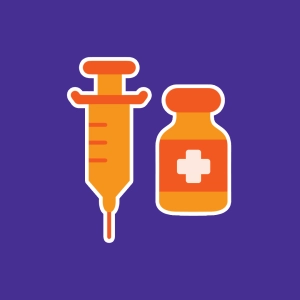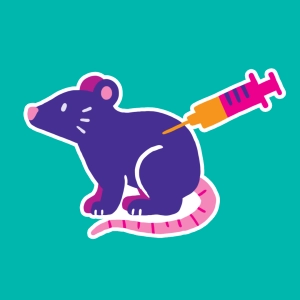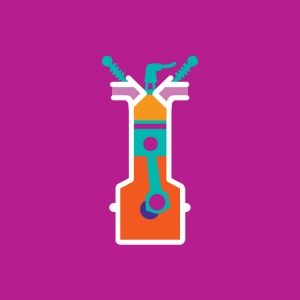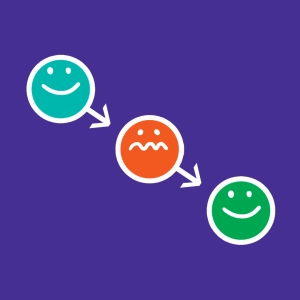 Vaccine Candidate
Vaccine Candidate
Learning objectives
- To Illustrate the test protocol that leads to the validation of a vaccine candidate.
The above animation describes the clinical trials needed to approve the use of a vaccine in humans. THIS SIMULATION IS EDUCATIONAL! The parameters used are not characteristic of a particular vaccine. Our goal is to provide teachers with a qualitative tool to illustrate the different stages of control to ensure that a "vaccine candidate", a vaccine in development, is safe and effective. Under no circumstances can these parameters be used as justification or evidence. In addition, the criteria for approval of a vaccine may vary from country to country.
Vaccination is a procedure that aims to protect the body from a specific infection by stimulating the immune system.
Each company must ensure that its vaccine candidate is safe and effective for humans. To do this, they work with medical institutions, doctors, experts and volunteer patients. The entire procedure must also be approved by an ethics committee.
Trials can be stopped at any time if the vaccine is not safe, or not effective enough.
For each phase of a clinical trial, a vaccine is always compared to a placebo. A placebo is a treatment identical to the vaccine, but free of active ingredients. It is usually made of water, salt and preservatives. Half of the study participants will receive a placebo shot. The other half will receive the vaccine. The results are then compared between the two groups to assess the risks and benefits of the vaccine candidate. Is it safe enough? Does it seem to protect enough against the disease?
Developing a vaccine normally takes several years. The bulk of the time is usually spent on funding research, marketing and bureaucracy, not on clinical trials per year.
The World Health Organization estimates that vaccination saves about 2 million people a year.
eduMedia has made a comprehensive interactive report on the topic of the epidemic. Click “Virus, vaccine, viral subject” to access it.

Discover EduMedia for free
The interactive encyclopedia that brings science and math to life in the classroom.
Over 1,000 resources





